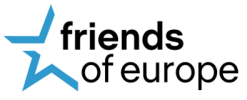About
Despite institutional commitment to abide by UN Security Council Resolution 1325 on Women, Peace and Security (WPS), women are still largely under-represented in crisis management, security and defence. NATO and the Council of the EU have striven for more inclusion, adopting a Joint Declaration to consider issues on WPS in 2017. The European Commission has also committed to better inclusion of women in peace and security in its strategic policies. However, the translation of these commitments into practice has fallen short. According to the #SHEcurity Index, women on average make up only 11% of military staff and 25% of police forces in the EU, its member states and the G20.
Furthermore, the WPS Agenda lacks a holistic approach to gender and its narrow approach overlooks the experiences of LGBTIQ+ people in conflict and disaster settings, as well as within security institutions. Meanwhile, across the Atlantic, a transgender military ban exposed US service members to be discharged on the basis of gender identity, until the Biden administration repealed the ban in January 2021.
In addition to the obstacles in joining security forces, women face stigma and prejudices once serving, which can often go unrecognised. Whether unbalanced representation is caused by a lack of diversity or reluctant hiring processes, a more pro-active approach is needed in order to achieve better inclusion in the peace and security workforce. Additionally, a broader understanding of the WPS framework would strengthen the concept of gender equality and weaken the effects of discrimination, promoting the transformation of military culture into a more inclusive and diverse environment.
Confirmed Speakers
Marie Meigård, Sargeant Major in the Swedish Armed Forces
MEP Dr. Hannah Neumann, Member of the European Parliament, Vice-Chair of the Subcommittee on Human Rights (DROI), Member Subcommittee on Security and Defence
Alan Sneddon, Police Office in Scotland
Paul Kirby, Co-director at the UKRI GCRF Gender, Justice and Security Hub, London School of Economics



